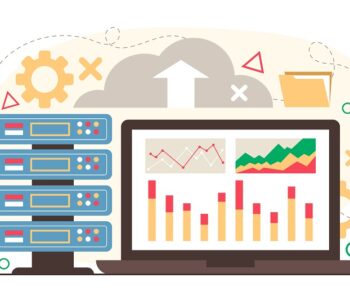 Healthcare
Healthcare Streamlining Healthcare Operations: Tackling the Top 15 Frustrations of…
In the dynamic world of healthcare, the optimization of workflows stands at the forefront of challenges faced by leadership and management. In this blog post, we’ll unravel the top 15 reasons for frustrations around inefficient workflows and explore how cutting-edge software tools can bring about transformative change.
1. Manual Data Entry and Repetitive Tasks:
- Frustration Level: 9/10
The reliance on manual data entry and repetitive tasks contributes to inefficiencies, consuming valuable time and increasing the risk of errors.
Solution: Introduce workflow automation tools that eliminate manual data entry, automating repetitive tasks to enhance accuracy and free up time for more critical activities.
2. Communication Gaps Between Departments:
- Frustration Level: 8/10
Inefficient communication between departments leads to delays, misunderstandings, and a lack of coordination in patient care.
Solution: Implement communication platforms and collaboration tools that facilitate seamless information exchange between different departments, fostering better coordination and patient outcomes.
3. Appointment Scheduling Challenges:
- Frustration Level: 7/10
Manual appointment scheduling processes often result in overbooking, missed appointments, and patient dissatisfaction.
Solution: Develop an appointment scheduling software that optimizes schedules, reduces wait times, and enhances the overall patient experience.
4. Paper-Based Workflows and Documentation:
- Frustration Level: 8/10
The persistence of paper-based workflows hampers efficiency, leading to delays in accessing patient information and increased administrative overhead.
Solution: Transition to electronic health records (EHR) and document management systems, reducing reliance on paper and enabling quick and secure access to patient data.
5. Inadequate Resource Allocation:
- Frustration Level: 7/10
Poor resource allocation contributes to bottlenecks and delays in patient care, impacting the overall efficiency of healthcare operations.
Solution: Utilize resource management software that optimizes staffing levels, allocates resources based on demand, and improves overall operational efficiency.
6. Lack of Workflow Standardization:
- Frustration Level: 8/10
Inconsistencies in workflows across departments and facilities lead to confusion, errors, and hinder the ability to scale operations seamlessly.
Solution: Implement standardized workflows through customized software solutions that ensure consistency and streamline processes throughout the organization.
7. Slow Decision-Making Processes:
- Frustration Level: 9/10
Cumbersome decision-making processes result from inefficient workflows, impacting the organization’s agility and responsiveness.
Solution: Integrate decision support systems into workflows, providing real-time data and analytics to facilitate quicker and more informed decision-making.
8. Limited Access to Patient Data:
- Frustration Level: 7/10
Inefficient workflows often lead to delays in accessing critical patient data, hindering timely decision-making and patient care.
Solution: Develop a comprehensive health information exchange (HIE) system that ensures quick and secure access to patient data across the healthcare network.
9. Insufficient Training and Onboarding Processes:
- Frustration Level: 8/10
Inadequate training and onboarding procedures contribute to inefficiencies as staff may struggle with new technologies and processes.
Solution: Provide training platforms and onboarding software that ensure staff competency and smooth integration of new processes and technologies.
10. Lack of Integration with Emerging Technologies:
– Frustration Level: 8/10
Failure to integrate emerging technologies, such as AI and IoT, into workflows results in missed opportunities for efficiency and innovation.
Solution: Offer integration services for emerging technologies, enhancing workflows and unlocking the full potential of cutting-edge solutions.
11. Inefficient Inventory Management:
– Frustration Level: 7/10
Poorly managed inventories lead to supply chain disruptions and hinder the smooth functioning of healthcare operations.
Solution: Deploy inventory management software that optimizes stock levels, automates reorder processes, and minimizes waste.
12. Complex Billing and Revenue Cycle Processes:
– Frustration Level: 9/10
Inefficiencies in billing and revenue cycle processes lead to delays in reimbursement, impacting the financial health of healthcare organizations.
Solution: Implement billing and revenue cycle management software that automates billing processes, reduces errors, and accelerates reimbursement cycles.
13. Limited Patient Engagement:
– Frustration Level: 8/10
Inefficient workflows often result in limited opportunities for patient engagement and shared decision-making.
Solution: Develop patient engagement platforms that seamlessly integrate with workflows, enabling proactive communication and involvement in care decisions.
14. Lack of Mobile Access and Remote Capabilities:
– Frustration Level: 7/10
Restricted access to workflows from mobile devices and remote locations limits the flexibility of healthcare professionals.
Solution: Create mobile-friendly applications and remote access solutions that empower healthcare workers to perform tasks efficiently from any location.
15. Resistance to Change and Technology Adoption:
– Frustration Level: 8/10
Resistance to adopting new technologies and workflows impedes progress and limits the benefits of innovation.
Solution: Implement change management strategies alongside user-friendly software solutions, ensuring a smooth transition and fostering a culture of continuous improvement.
In conclusion, the transformation of healthcare workflows is within reach through the strategic implementation of innovative software solutions. By addressing these frustrations head-on, healthcare organizations can usher in a new era of efficiency, collaboration, and improved patient outcomes.
#HealthcareEfficiency #WorkflowOptimization #HealthTech #SoftwareSolutions #HealthcareInnovation























